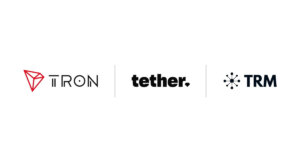 Kraken continues to prank crypto scammers with KitBoga to expose crime as Certik returns funds
Kraken continues to prank crypto scammers with KitBoga to expose crime as Certik returns funds Kraken continues to prank crypto scammers with KitBoga to expose crime as Certik returns funds
In their ongoing effort to fight crypto fraud, Kraken and KitBoga use real-time engagement to gather critical intelligence.

Cover art/illustration via CryptoSlate. Image includes combined content which may include AI-generated content.
Amid the drama related to the ‘whitehat‘ Certik hack. Kraken is continuing its partnership with popular YouTuber KitBoga to combat crypto scammers. This collaboration, which has been ongoing for over a year, aims to leverage KitBoga’s unique approach of engaging with and exposing scammers to gather critical information that can be used by authorities to track and take down these fraudulent operations.
In an innovative effort to tackle crypto fraud, Kraken has teamed up with YouTuber KitBoga, who is known for his creative approach to exposing scammers. Beyond entertainment, this collaboration aims to identify and disrupt fraudulent activities that exploit crypto users.
Kraken developed a dummy version of the Kraken website that allows KitBoga to dupe scammers into believing they can steal his Bitcoin. Little do they realize that every time they enter an address to withdraw his funds, that address is flagged and sent around to all crypto exchanges for review. Previous collaborations between Kraken and KitBoga appear to have successfully frozen funds from other scammers preying on the elderly.
Most recent scammers scammed by Kraken and KitBoga
The partnership’s strategy was highlighted in a recent KitBoga video, where he engaged with a scammer running a common grandparent scam. This scam involves fraudsters convincing elderly individuals that their grandchildren are in trouble and need money, often paid through Bitcoin ATMs. KitBoga, using his experience and skills, devised a plan to trap the scammer by pretending to be a concerned grandparent willing to pay the demanded ransom.
KitBoga’s approach involved setting up a fake Bitcoin ATM and a pretend Bitcoin exchange website called Mycoin controlled by his team. By doing so, they could manipulate the interaction and gather crucial data from the scammer. The scammer, believing he was about to receive funds, was instead led through a series of frustrating interactions designed to waste his time and extract more information about his operations.
Throughout the video, KitBoga managed to obtain multiple Bitcoin wallet addresses used by the scammer. This information was critical, as it allowed Kraken’s fraud team to analyze the transaction history linked to these wallets. By identifying patterns and connections, Kraken could trace the flow of stolen funds and potentially recover some of the money sent by scam victims.
Kraken’s Chief Security Officer, Nick Percoco, played a significant role in the operation. By joining KitBoga on the call, Pero helped frustrate the scammer further and gather additional information. Their combined efforts showcased a proactive approach to cyber fraud, where real-time engagement with scammers can lead to valuable intelligence.
The information collected from the scammer’s wallets, such as transaction histories and linked accounts, as well as their IP addresses, provides Kraken’s fraud team with data to work with law enforcement agencies. This collaboration aims to disrupt the scam networks and offer insights into preventing such scams in the future. KitBoga stated,
“We were able to report a bunch of valuable information to various fraud professionals and start investigating a bunch of their crypto accounts.
Hopefully authorities will be able to work with some of the victims and the exchange that these scammers had been funneling their money through it’s kind of up to the authorities to investigate at this point but for now I rest easy knowing that this guy is probably haunted by this experience.”
KitBoga’s motivation for these activities is deeply personal, stemming from a desire to protect vulnerable individuals like his own grandparents, who suffered from Alzheimer’s and dementia. His videos not only serve as educational content but also as a form of digital vigilantism, aiming to bring scammers to justice and prevent future victims.
Kraken’s involvement illustrates its commitment to security and fraud prevention in the crypto space, as well as a desire to help educate users through entertainment, or ‘edutainment’. By partnering with influencers like KitBoga, Kraken aims to create a safer environment for its users. Kraken has been integrating advanced security measures and collaborating with various stakeholders to enhance the overall integrity of crypto transactions.
As Kraken reported, this partnership is part of their broader initiative to support cybersecurity efforts. By utilizing unconventional methods and engaging directly with scammers, Kraken hopes to deter fraudulent activities and provide a model for other organizations in the crypto industry.
The collaboration with KitBoga not only disrupts individual scam operations but also contributes to a larger effort to make the crypto ecosystem more secure. This innovative approach demonstrates the potential of combining technological expertise with creative problem-solving to address complex challenges in the digital age.
Certik returns funds to Kraken ending drama
Additionally, blockchain security firm CertiK has returned funds to Kraken following its discovery of a critical vulnerability in Kraken’s deposit system, which allowed for the fabrication of deposits and withdrawals of large sums without triggering alerts.
CertiK conducted tests between June 5-10, revealing that millions could be deposited into any Kraken account and over $1 million in fabricated crypto could be withdrawn. The firm reported its findings to Kraken on June 10, leading to the vulnerability being fixed by June 12.
However, the situation escalated when Kraken accused CertiK of extortion, alleging that nearly $3 million was taken from its wallets. CertiK denies these allegations, stating it intends to return the funds used for “white-hat testing” and asserting that Kraken threatened its employees and demanded repayment of a mismatched amount without providing a proper wallet address.



 CryptoQuant
CryptoQuant 




























































































